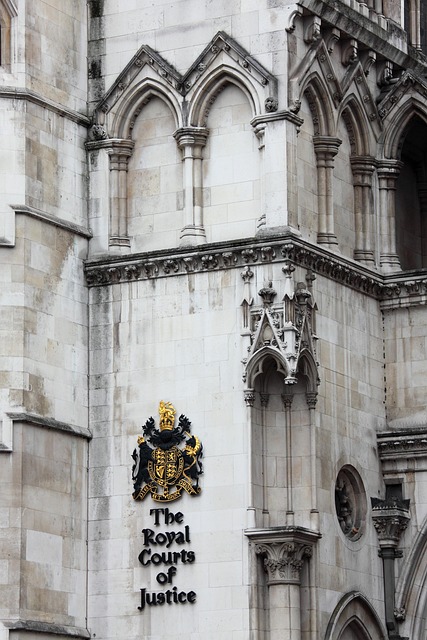Probate law in Oregon provides a structured process for administering deceased individuals' estates, ensuring fairness and legal compliance. This involves identifying and valuing assets, repaying debts, and distributing them according to the deceased's will or state laws of intestacy. Key roles are played by executors/administrators, with strict adherence to statutes mandatory. Understanding estate types (testate vs. intestate) and the personal representative's duties is crucial for navigating this complex legal landscape. Probate procedures involve filing petitions, asset management, debt repayment, and distribution to beneficiaries under Oregon probate law.
Understanding Oregon probate law is essential for navigating the complex process of asset distribution after someone’s death. This step-by-step guide covers crucial aspects, from defining what probate law entails to demystifying Oregon’s legal framework. We’ll explore types of estates and their impact on probate, the role of a personal representative, inheritance rights, and common procedures. By delving into these topics, you’ll gain valuable insights into Oregon probate law.
- What is Probate Law?
- Oregon's Legal Framework for Probate
- Types of Estate and Their Impact on Probate
- The Role of a Personal Representative
- Inheritance and Beneficiaries' Rights
- Common Probate Procedures in Oregon
What is Probate Law?

Probate law in Oregon refers to the state’s legal framework governing the administration and distribution of a deceased person’s estate. It outlines the procedures for handling assets, paying debts, and ensuring that beneficiaries receive their rightful shares. Understanding probate law is crucial for individuals planning their estate or navigating the process after someone’s passing.
In Oregon, probate typically involves several key steps: identifying and valuing assets, paying any outstanding debts and taxes, and distributing remaining assets according to the deceased person’s will or, if there is none, state laws of intestacy. This legal process ensures that everything is handled fairly and in accordance with the law, providing closure for families and ensuring the secure transfer of property and assets.
Oregon's Legal Framework for Probate

Oregon, like many U.S. states, has a well-defined legal framework for probate, which is the process of administering the estate of a deceased person. The state’s probate law outlines the procedures and requirements for handling wills, distributing assets, and managing affairs when someone passes away. This framework ensures that estates are settled efficiently and fairly, providing clarity and security to families during an emotional time.
Oregon’s probate law is governed by state statutes, which lay out the roles of various parties involved in the process, including executors, administrators, and beneficiaries. The law also dictates the steps for filing a will, conducting hearings, distributing assets, and managing any potential disputes that may arise. Understanding these laws is crucial for anyone navigating the complex landscape of probate, ensuring compliance with Oregon’s specific requirements.
Types of Estate and Their Impact on Probate

When navigating Oregon probate law, understanding the types of estates is crucial. An estate refers to the aggregate of all property owned by a person at the time of their death, including both real and personal assets. In Oregon, there are primarily two types of estates: testate and intestate. A testate estate occurs when a person has left a valid will, which outlines how their assets should be distributed after their passing. This provides clarity and can help streamline the probate process, as the court follows the instructions laid out in the will.
In contrast, an intestate estate happens when someone dies without a valid will. In these cases, Oregon’s statutes dictate how the estate is distributed based on relationships to surviving family members. The impact on probate is significant because there may be more complex issues to address, such as determining heirship and potentially triggering disputes among relatives. Additionally, intestate estates often go through a longer and more involved court process compared to testate estates.
The Role of a Personal Representative

In the context of Oregon probate law, the role of a personal representative is pivotal. They are appointed by the court to oversee the administration of an estate after a death. This includes managing and distributing the deceased’s assets according to their wishes, as laid out in their will or, if there is no will, following state laws regarding intestate succession. The personal representative acts as a fiduciary, holding themselves to the highest standard of care and loyalty during this process.
Their responsibilities span various tasks such as identifying and cataloging the deceased’s assets, collecting and managing them, paying outstanding debts and taxes, and ultimately distributing the remaining assets to the beneficiaries named in the will or according to state law. They must also ensure compliance with all relevant Oregon probate laws, maintaining meticulous records throughout to account for their actions and decisions.
Inheritance and Beneficiaries' Rights

In Oregon, probate law outlines the process and rights related to the distribution of a deceased person’s estate, including inheritance matters. When an individual passes away, their assets are typically subject to probate, ensuring that their wishes regarding property distribution are legally carried out. Inheritance plays a crucial role in this process as it determines who receives the deceased’s assets and how they are divided among beneficiaries.
Oregon probate law grants specific rights to beneficiaries named in a will or, if there is no will, according to state inheritance laws. Beneficiaries have the right to challenge any provisions they believe are unfair or invalid. This ensures that the distribution of an estate is just and aligns with the deceased’s intentions. Understanding these rights is essential for both beneficiaries and those administering the estate to navigate Oregon probate law effectively.
Common Probate Procedures in Oregon

In Oregon, probate procedures are designed to manage and distribute a deceased individual’s estate according to their will or the laws of intestacy. The process typically involves several key steps: filing a petition with the court, appointing an executor (or personal representative), identifying and valuing assets, paying debts and taxes, and ultimately distributing the remaining assets to the beneficiaries. Each step is crucial in ensuring that the deceased’s wishes are respected and their affairs are resolved efficiently.
Common probate procedures in Oregon include gathering and organizing financial records, filing necessary paperwork with the court, attending hearings, and cooperating with the appointed executor or personal representative. The court will oversee this process to ensure it complies with state probate law, Oregon Probate Law, which dictates the rules and regulations for managing estates. This ensures fairness, transparency, and adherence to legal requirements throughout the administration of the estate.
